The Investment of a Classical Christian Education
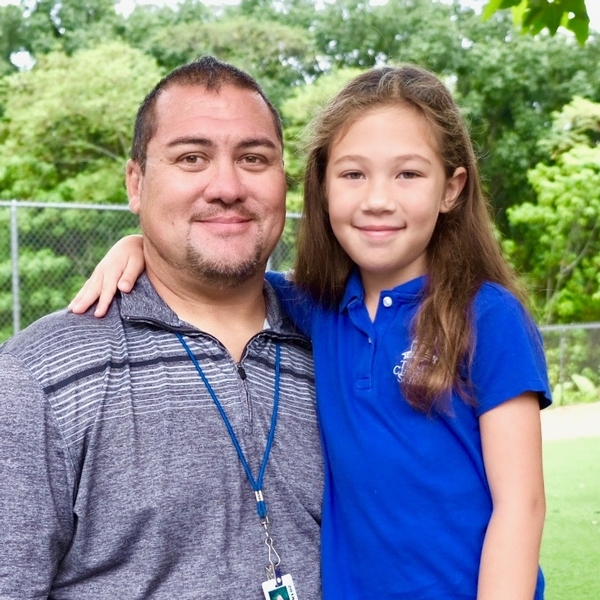
By Peahi Kapepa, TCS parent
When deciding to send my daughter to Trinity Christian School, I was very attracted to the school as a whole. First, for the obvious reasons that the Bible is taught and prayer and Christ are woven throughout everything the students do from playtime to resolving conflicts and problems.
Now, three years later, I’ve learned about the Classical Christian approach and its benefits as a natural progression of education. At first, it sounded strange to me. When it comes to things that seem complicated and fancy, I assume that it’s something that it’s not. My skepticism was proven right and wrong. Right, by learning what Classical Christian education is, I realized it is relatively simple and a common-sense approach that has been shown over time. And wrong, in that the American public education system has strayed far from what was working for so long. The “new” progressive method has “dumbed down” the basics of how children are taught.
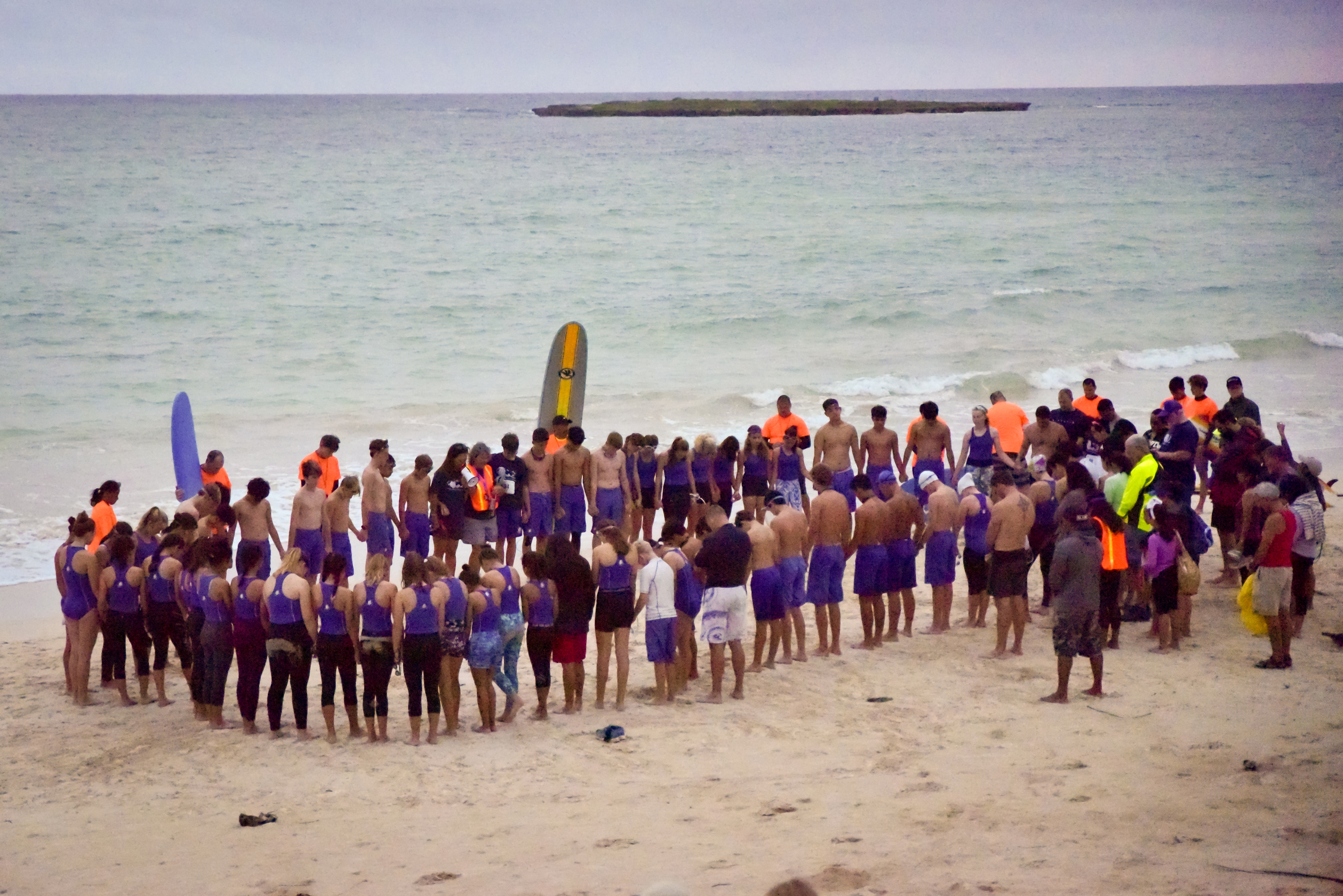
The Trivium is comprised of Grammar, Logic and Rhetoric stages but I’ve chosen to focus on the first part of the Trivium: Grammar. Not only is grammar taught but heavily emphasized in the classical format in K-6. Grammar is explained using the vehicles of song and chant which is invaluable to memorization. It’s also fun and causes the kids to thrive in their early years. Instead of merely learning “grammar,” students are learning all subjects from a logical perspective. It has been fascinating to see this at work in my daughter.
Another part of the grammar stage of the classical method that attracted me to Trinity is the focus on language. I was glad to find out that Hawaiian is taught in the first few years of Elementary school because my daughter and I are part-Hawaiian. I have taught her to first identify herself as a child of God, but it’s important to me that she learn about her culture and the beautiful place we are blessed to live.
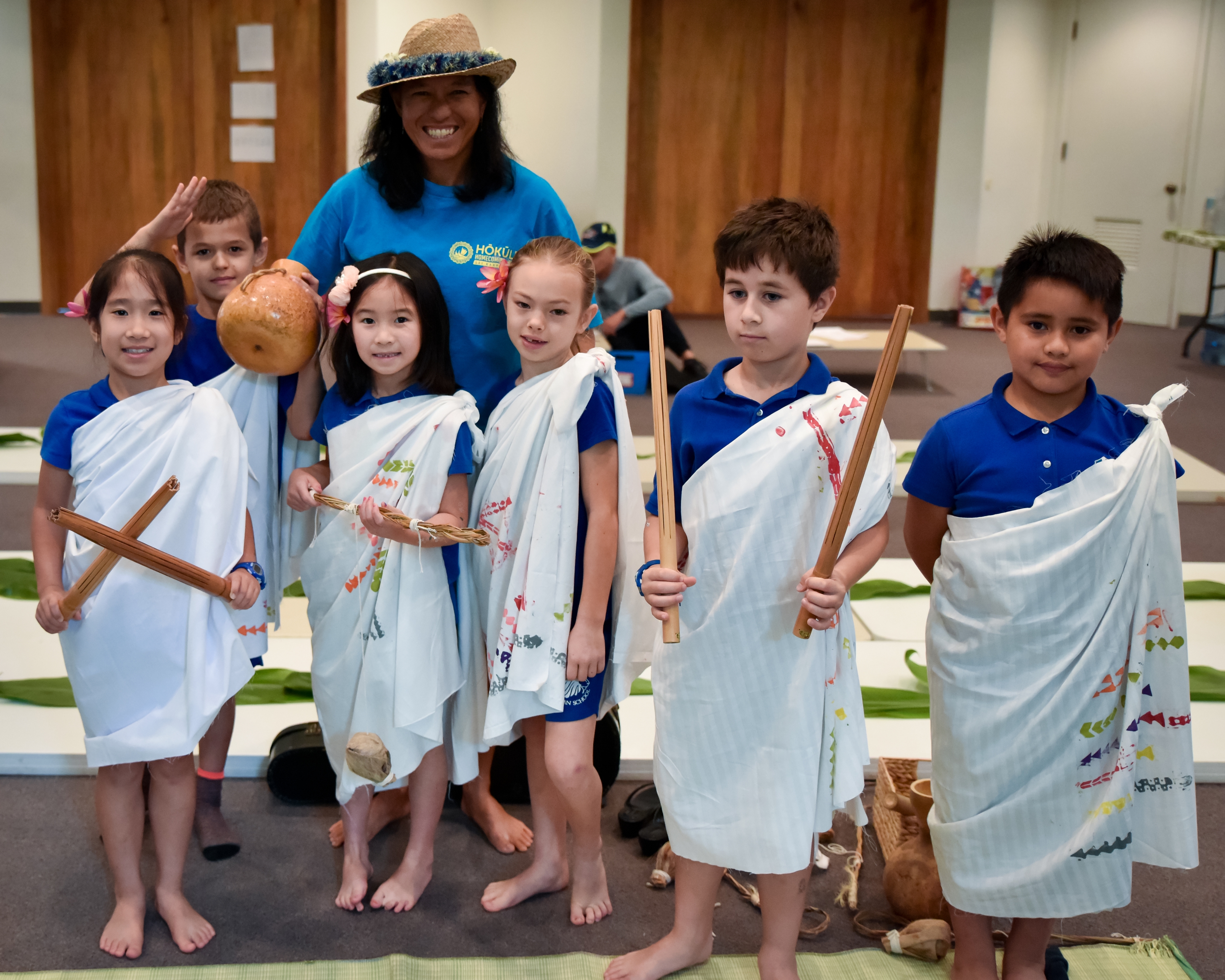
The other language subject that impressed me is that Latin is taught. My parents both studied Latin in high school and college, and I know how much they value the understanding it gave them. I look forward to my daughter delving into the subject.
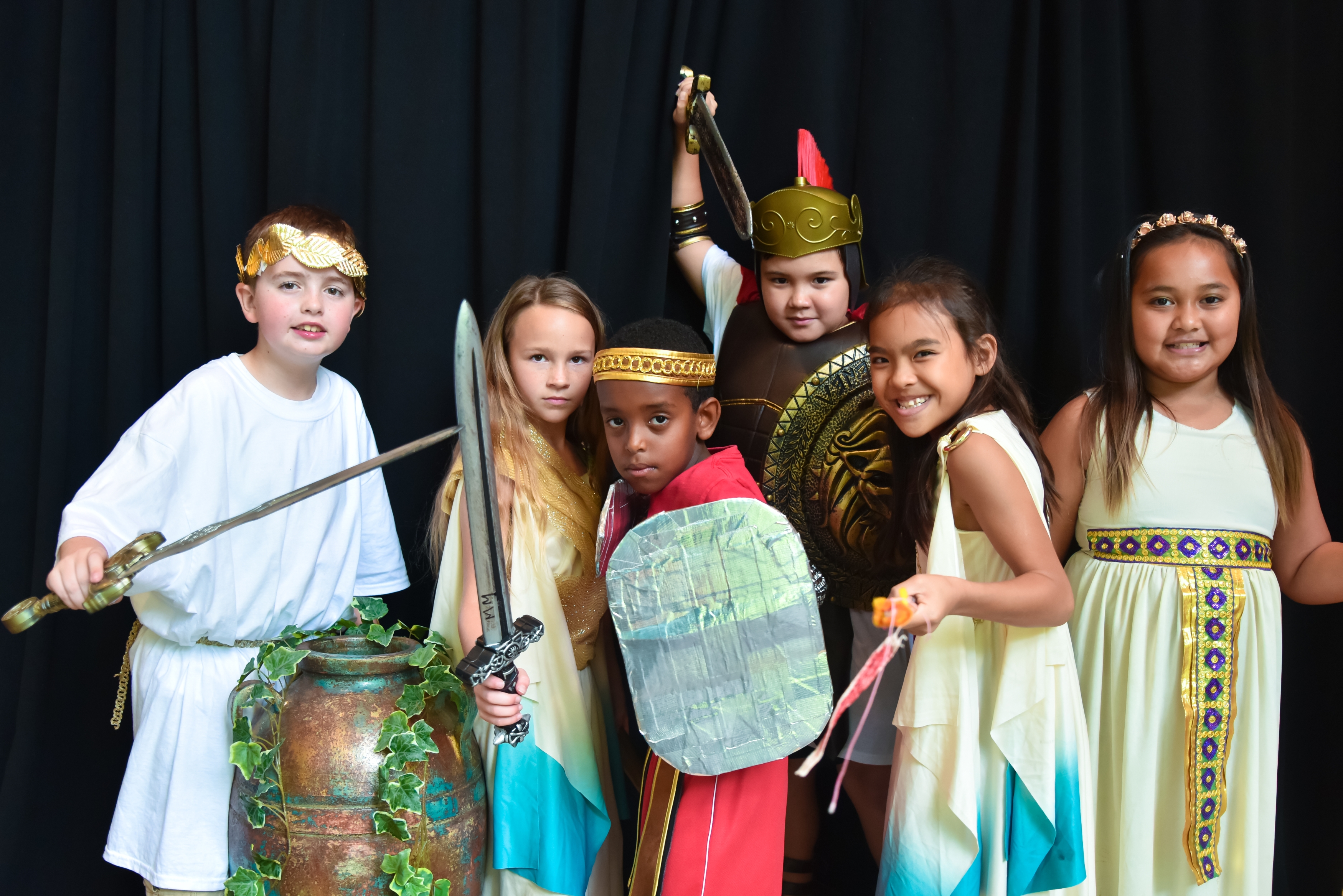
We are approaching our fourth year at Trinity, and I am absolutely sold on the classical Christian method of education. I’ve had the perspective of witnessing the school as a parent and as a teacher. I will testify to the value of classical Christian education and how my daughter has blossomed and excelled in this system. Our Christian family values are being reinforced at school. My daughter is receiving a superior education based on a proven record. It will continue to enhance her life after she graduates.
What is Classical Christian Education?

What is Classical Christian Education?
Reflections at the start of a new school year
by Eric Fugitt
There is a crisp feeling in the air on a cool August morning as the doors to Trinity Christian School open wide and a new year begins to unfold. There is a flood of enthusiasm amongst the faculty, parents, and students as we eagerly anticipate the wonders we will uncover over the next 9 months. Uniforms are freshly laundered and neatly worn, and an eager smile shines on every face. I see waving parents—resting in the confidence of their choice of school for their children—dropping them off at the curb or walking their little ones to their fresh, new classrooms. The atmosphere is electrified with wonder, awakened from its summer drowsiness, igniting anticipation in having that wonder fulfilled.
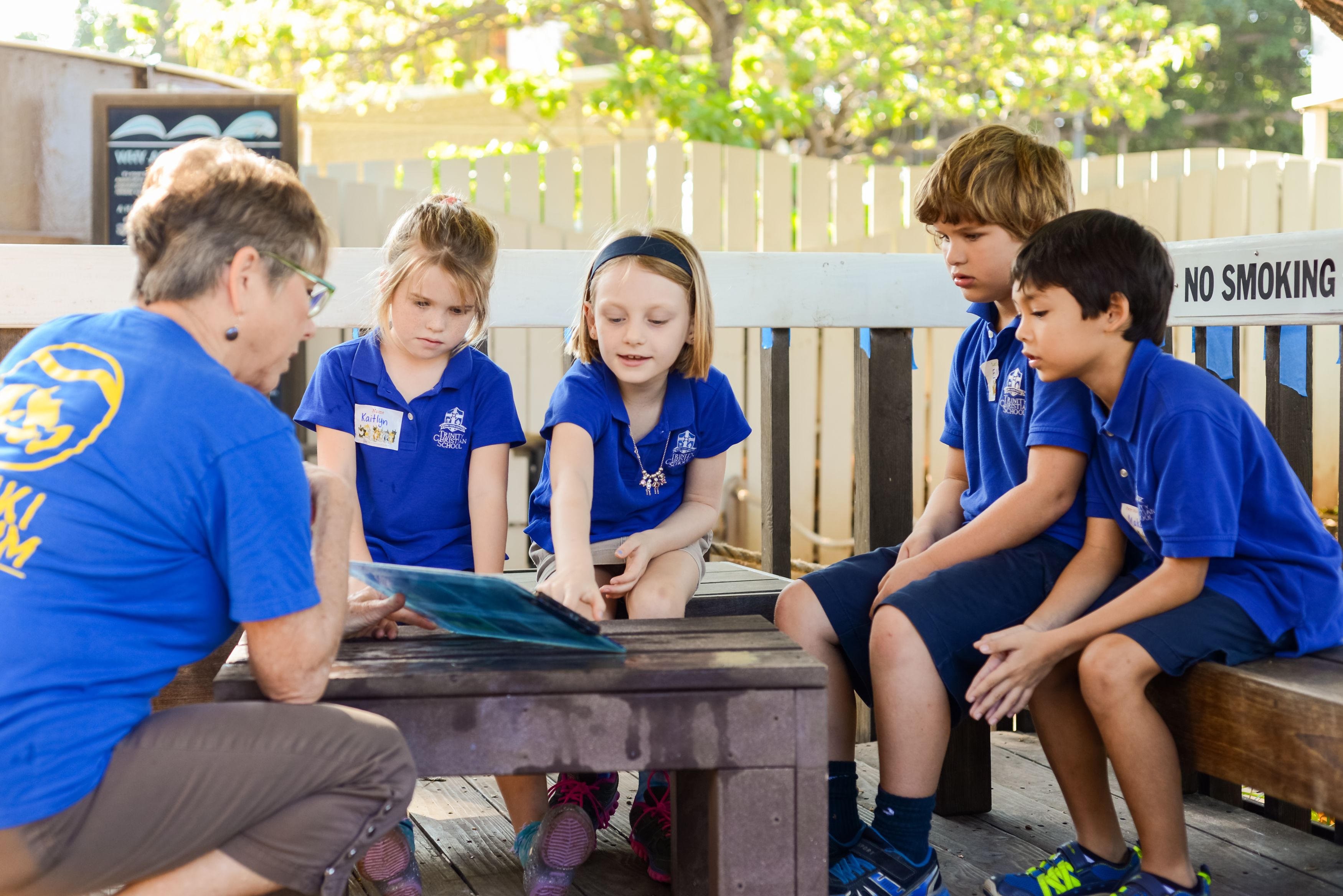 Throughout the next few months, the halls of the grammar school in this classical Christian environment will resound with the echoes of chants, sound-offs, and songs being ardently practiced each day by energetic and enthusiastic children taking satisfaction in their ability to memorize astonishing quantities of material with relative ease. These children are being taught according to their God-given gifts. We are teaching “with the grain” of each child, which promotes wonder and makes for a happy and contented student. Gone are the days of goading the child to prematurely reach far beyond his grasp to higher-level thinking which he finds unpleasant—making little sense to his developing mind. This child is the most content when life consists of black and white, right and wrong, and facts and rules. He takes delight in his ability to recall and recite volumes of information from their latest science or bible lesson, sing funny grammar jingles, or chant about his history time-period.
Throughout the next few months, the halls of the grammar school in this classical Christian environment will resound with the echoes of chants, sound-offs, and songs being ardently practiced each day by energetic and enthusiastic children taking satisfaction in their ability to memorize astonishing quantities of material with relative ease. These children are being taught according to their God-given gifts. We are teaching “with the grain” of each child, which promotes wonder and makes for a happy and contented student. Gone are the days of goading the child to prematurely reach far beyond his grasp to higher-level thinking which he finds unpleasant—making little sense to his developing mind. This child is the most content when life consists of black and white, right and wrong, and facts and rules. He takes delight in his ability to recall and recite volumes of information from their latest science or bible lesson, sing funny grammar jingles, or chant about his history time-period.
In the grammar school, we are about the business of teaching the facts and rules (the grammar) of each subject in God’s creation to foster a sense of wonder already present in the child’s mind. There is a telos, or purpose, in teaching this way. We are preparing him for a life with Christ as well as for the next level of his classical education—the logic stage—where his “wonder-grain” starts to take on a new pattern.
As he moves out of the grammar stage, his mind is bursting with knowledge that the secondary teachers begin to rework. His new sense of wonder takes delight in analyzing the world around him while looking for flaws. Everything is prey to his analysis. No lapses in logic are insignificant. He scrutinizes everything so as to argue everything.
Knowing their students possess in full measure these characteristics, the teachers begin to train him to  discuss and debate moral issues in a Christ-like manner. Teachers at this level challenge their students’ assumptions. This requires a tough skin, because the teacher is now the target of his students. We educate him in the fine art of argumentation with an intentional concentration on his demeanor (ethos), logic (logos), and persuasiveness (pathos) so that he may bring glory to God and be firmly grounded when interacting in the adult world. We encourage and help facilitate a deeper relationship with Christ so that He may mold the child into His image—creating within him a deeper beauty.
discuss and debate moral issues in a Christ-like manner. Teachers at this level challenge their students’ assumptions. This requires a tough skin, because the teacher is now the target of his students. We educate him in the fine art of argumentation with an intentional concentration on his demeanor (ethos), logic (logos), and persuasiveness (pathos) so that he may bring glory to God and be firmly grounded when interacting in the adult world. We encourage and help facilitate a deeper relationship with Christ so that He may mold the child into His image—creating within him a deeper beauty.
Finally, as he progresses through to the Rhetoric stage, he now has his facts and rules of the world around him; he has dissected the significance of the Logos (Christ—the glory of God); he has logically debated the effects of the Creation, Fall and Redemption of man; and he now learns to articulate his viewpoint reasonably and persuasively for the glory of God. It is in the Rhetoric stage that the “wonder-grain” bends once again as the student now desires to articulate the wisdom God has given him. This articulation is performed both orally and in written form. Deep, meaningful discussions permeate the Rhetoric stage. Along with core academic classes, students take formal rhetoric to refine the craft of discussion and persuasion. A Christ-like presence, an ability to reason in a reflective, thoughtful manner, and an attractive persuasiveness in speaking the Truth are the aims of a classical Christian education.
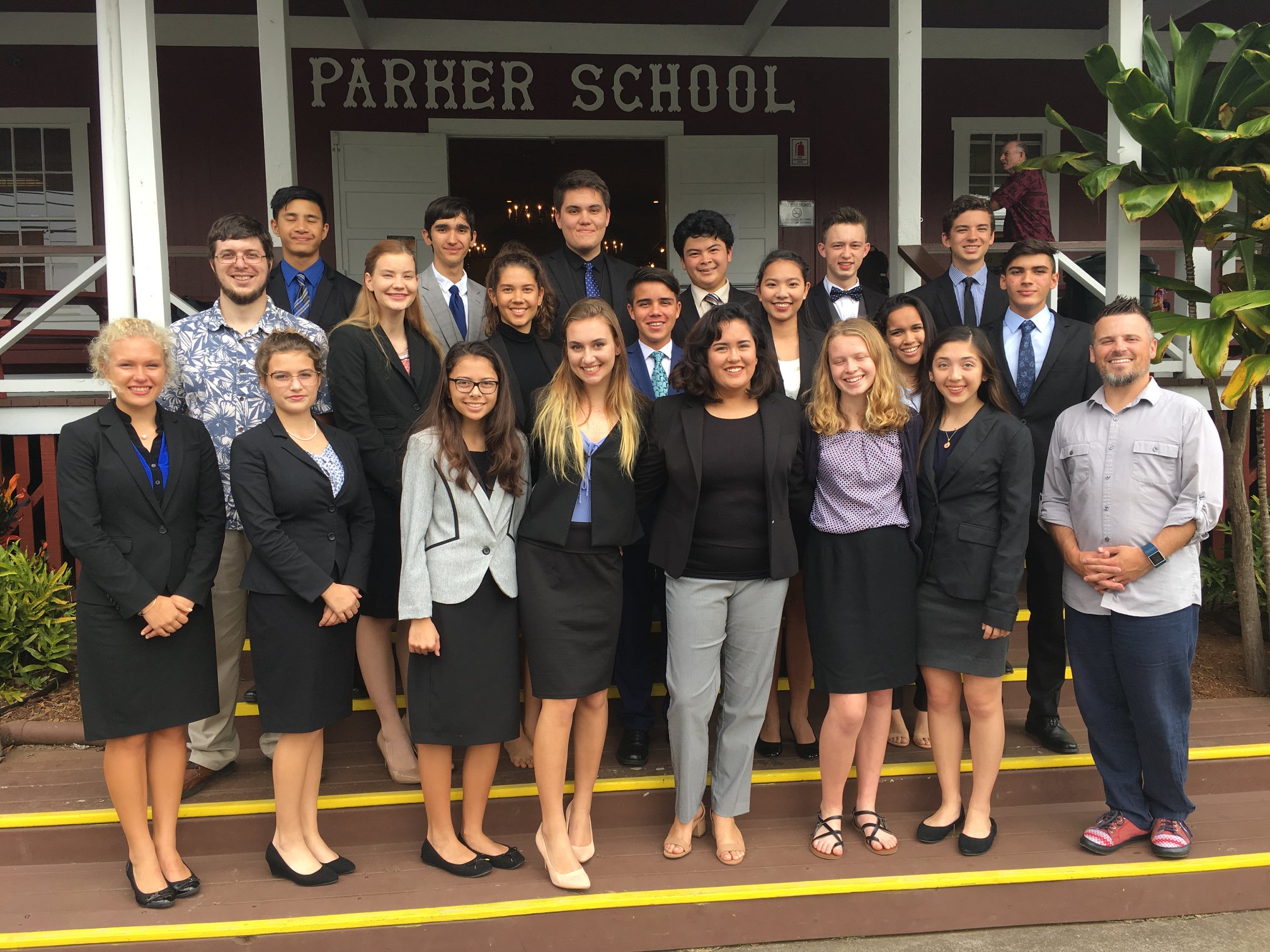 The ultimate goal of a classical Christian education is heart and character formation for the glory of God. True education can only be accomplished within the context of a strong biblical worldview. We establish our students in the truth of the Lordship of Jesus Christ over all knowledge, understanding, and wisdom. We bask in the truth, beauty, and goodness of Jesus Christ found in His Word and in His creation. This is what we do. This is our spiritual act of worship each day. Soli Deo Gloria.
The ultimate goal of a classical Christian education is heart and character formation for the glory of God. True education can only be accomplished within the context of a strong biblical worldview. We establish our students in the truth of the Lordship of Jesus Christ over all knowledge, understanding, and wisdom. We bask in the truth, beauty, and goodness of Jesus Christ found in His Word and in His creation. This is what we do. This is our spiritual act of worship each day. Soli Deo Gloria.
Finding the Difference between the IB Program and Classical Christian Education: Part 4
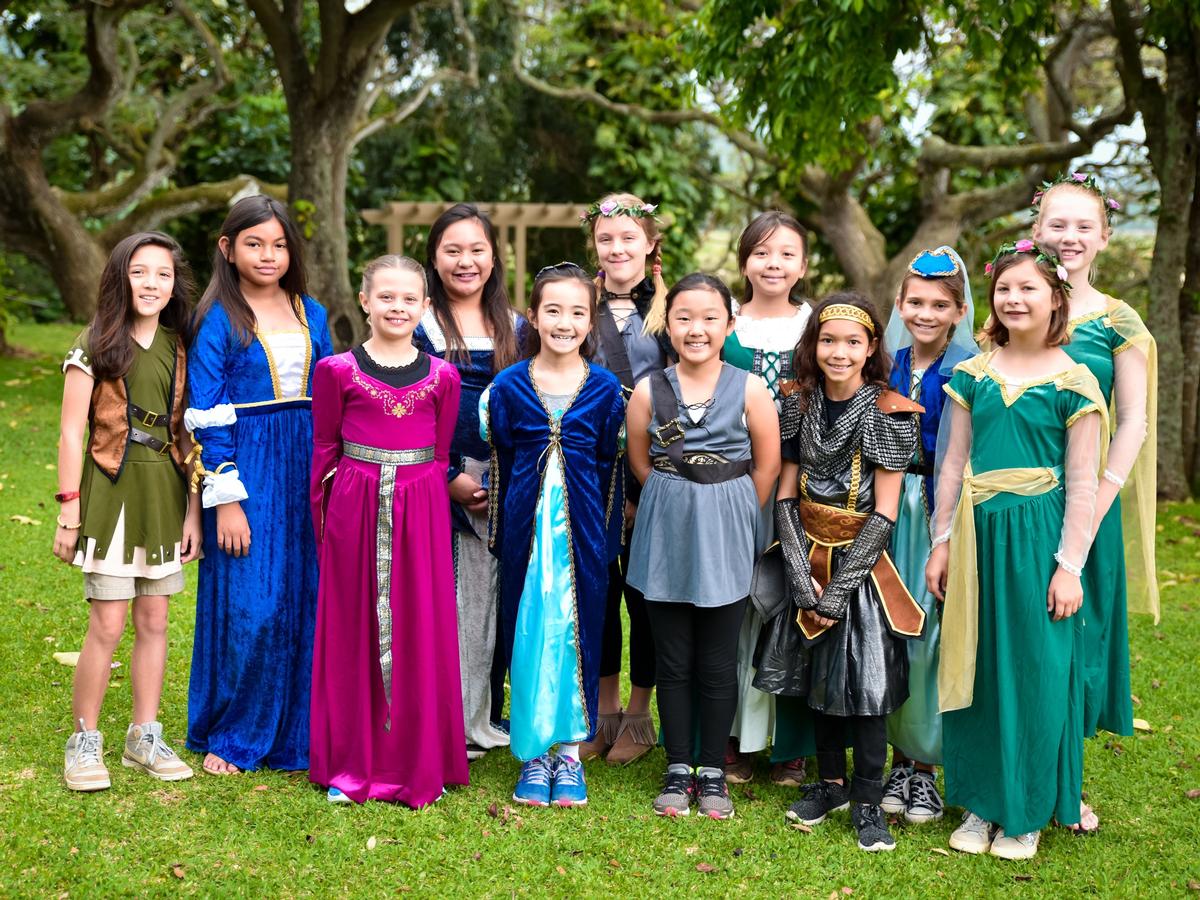
Finding the Difference Part 4: On the Classics & the Gospel
Written by Mark Brians, 7th & 10th Grade Humanities Teacher
(This is the final installation in a series of four essays, click here for part one, and here and here, for parts two, and three, respectively).
Where do we find our definitions?
In his masterful work on virtue, philosopher Alasdair McIntyre has explained how we “can only answer the question ‘What am I to do?’ if I can answer the prior question ‘Of what story or stories do I find myself a part?’”
In much of this discussion about the major differences which distinguish the classical Christian tradition from other modes of education (the IB Program in particular), we have highlighted how these differences come from differences of definition: what it means to be human, what the purpose of education is, and how to measure excellence. These definitions are, in some sense, like answers to the question above, “what am I to do?” The answers and definitions furnished by classical Christian pedagogy, which we have discussed, are born from a prior answer to a more fundamental question, “of what story or stories are we a part?”
To this question we offer a simple answer: we are a part of the Gospel story —God’s story. But God’s story is a large one, including within it, many smaller stories. In being a part of the Gospel story, we find ourselves inextricably inheritors of another story, the classical one (hence the term for our pedagogy, “classical Christian education”). In this final essay, we will examine what exactly we mean by this, and why this matters for school life.
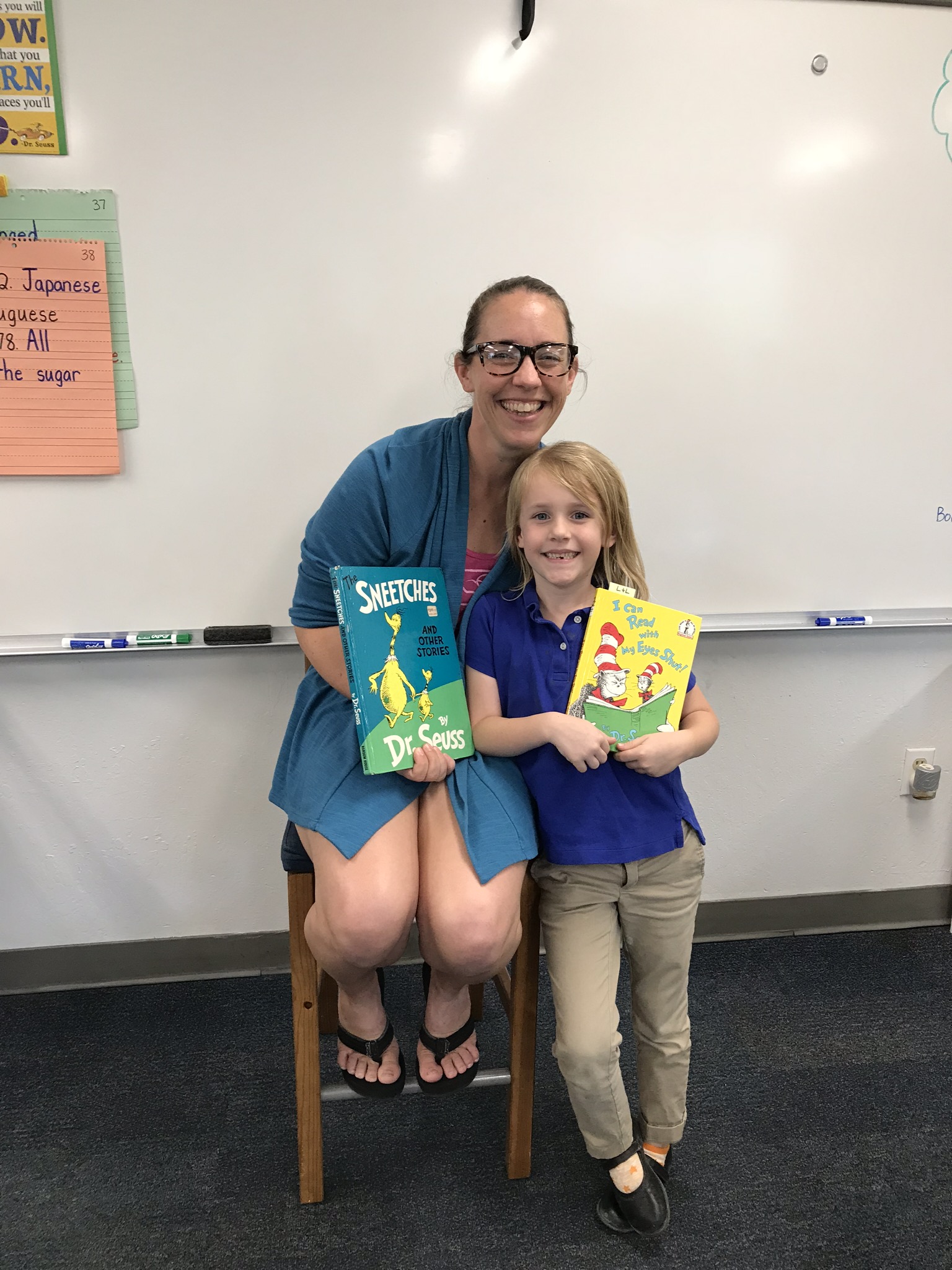 What do we mean by “Classics” and “Christian”?
What do we mean by “Classics” and “Christian”?
By “Christian” we refer to the Person of Jesus Christ as He is faithfully revealed in scripture. By this we refer, concomitantly, to the life and witness of the people of God in history and across the globe; and to the work of the Spirit of God in and through His Church.
By “classical” we refer to the collective wisdom and experience of the human past in general, with a particular focus on those of the West and Hawaii. This includes but is not limited to the histories, and names, and songs, and genealogies, and thoughts, and stories, and scientific discoveries, and skills, and practices, and knowledge, and moral lessons, and failed attempts at glory, and great victories; the living and dying of those people who came before us and gave us the now which we inherit by nature of being alive. We are the inheritors of a world that existed before we did, in the Gospel we are commissioned to be a part of the story God gave it.
Why does this matter for school life?
This may seem strange in an era that is deeply suspicious of words like “tradition” or “authority” and where the prevailing attitude in literature, philosophy, and history studies is purely critical (as opposed to receptive, attentive, grateful).
The problem, however with our culture’s deep resentment of authority and the past, is that it creates a vacuum in which nothing is called true except for inert “fact.” Roger Lundin incisively reveals what happens to a culture in the absence of these greater common authorities: “Instead of appealing to an authority outside of ourselves, we can only seek to marshal our rhetorical abilities to wage the political battles necessary to protect our preferences and to prohibit expressions of preference that threaten or annoy us.”
The observations of Clark and Jain is that “all education takes place in a context of a mythos (story), a logos (reason), and practices. Without a commitment to a tradition that establishes these, education is a drift from its moorings… and technological solutions alone will only protect us for a time.” Rather than balk against the notion of authority beyond the myopic present, we acknowledge, in the words of Michael Polanyi, that “no human mind can function without accepting authority, custom, and tradition: it must rely on them for the mere use of language.”
The classical Christian model of education begins its course by building a “robust and poetic moral education” grounded in the Gospel of Jesus and the wisdom of the classical tradition before moving to analysis or critique. This does not only help us to “get the facts” but enables us to array them within a life-giving framework by which we can work cooperatively, creatively and rationally towards critical thinking and thoughtful exploration. Instead of seeing the witness of history or the authority of the Gospel as foreclosures on human discovery, an ugly “gulf to be bridged,” we celebrate them as “the supportive ground of process in which the present is rooted.”
So far from eschewing the analytical, or “higher order”, categories of student performance, this bedrock, laid in the richness of the human past (“the classical”) under the genius of the Gospel (the Christian), actually produce the kind of vibrant academic community so many educators and families long for.
The Gospel is light, and in that Light, we see the light. Only within the fecundity of a historical witness and the Gospel that offers an authority beyond individual urges does reason truly flourish. As Gustav Mahler said, “Tradition is not the worship of ashes, but the preservation of fire.”
Using Discernment: Reflections from Irene Kano
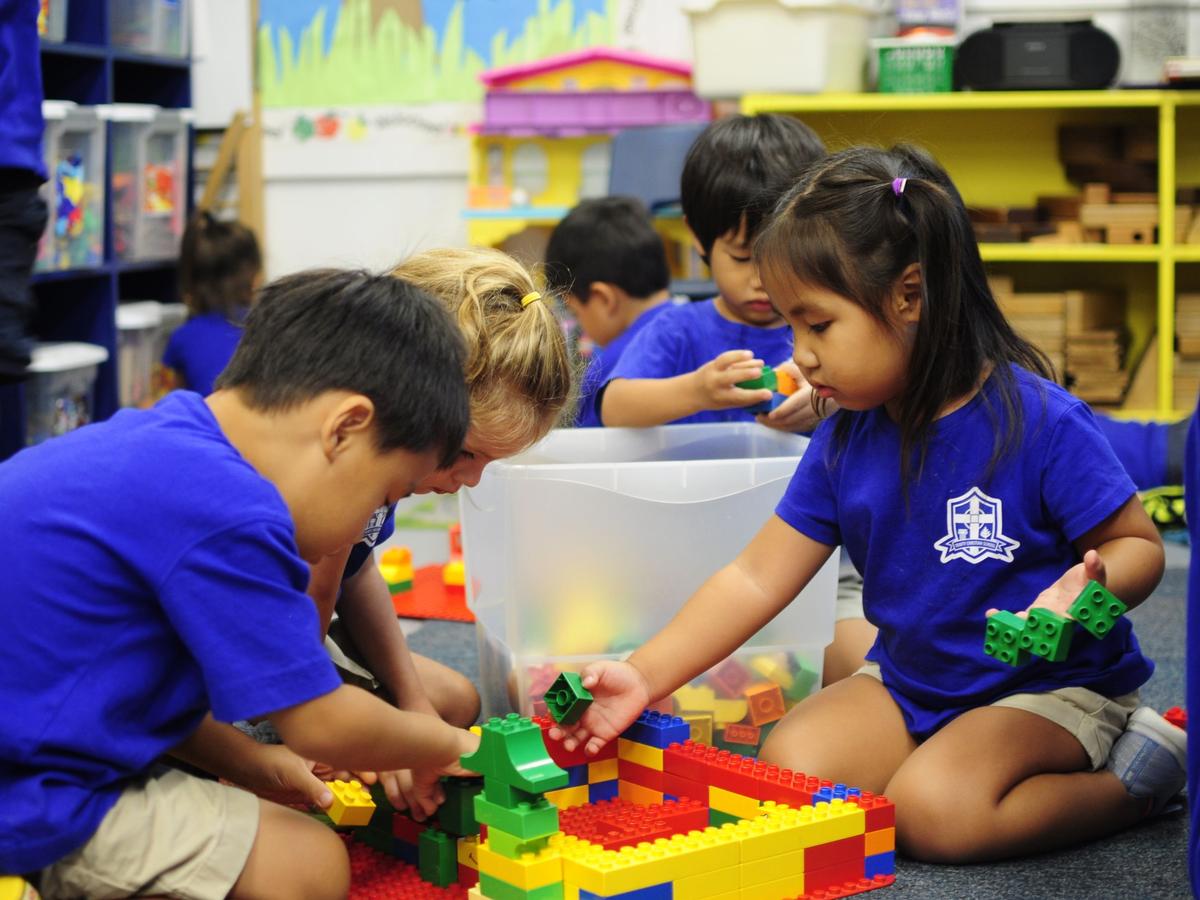
Using Discernment: Reflections from Irene Kano
Written by Irene Kano, Mauka Campus Principal
A few weeks ago, I found myself face to face with a child whose face was dripping with sweat and bright red with anger. He had been “sent to the Principal’s office” for a recess altercation where he had punched his classmate. Violence is entirely unacceptable, and as the Principal, it is part of my job to enforce school rules to keep all students safe. But as a parent and teacher who is tremendously thankful for the grace and patience of my Heavenly Father, I have learned the importance of taking the time to ask God for discernment and trust His insight to guide me so that I discipline children the way He teaches me.
Over the years I’ve learned that when supervising kids, we often only see the adverse reaction, but not necessarily the cause, of an altercation. The boy who was hit initially cried victim and the red-faced boy has been in my office a few times before. But when we got to the bottom of it, the “victim” was the one who had initiated the fight. I then had the opportunity to talk with both boys about how each of them was wrong in the situation, and explain how they shared the responsibility in the sinful act. It is easy for us to jump to conclusions and label our children or colleagues as “difficult” or “problems.” But when we do so, we limit our fellow image-bearers to our skewed perceptions of them and don’t leave room for the Holy Spirit to open our eyes and hearts. Discernment, grace, and the patience to understand are especially crucial when disciplining our kids and confronting our brothers and sisters when we’ve been wronged. I’m still learning to do this, and when I don’t get it right, I’m thankful for the reminder that God sees us entirely. In our best and in our worst, He remains loving and just.
Finding the Difference Between Classical Christian Education and the IB Program: Part 2

Part 2: On Learning & Love
Written by Mark Brians, 7th & 10th Humanities Teacher
In an earlier piece on the TCS 'Engaging Minds' blog, I discussed the significant differences between the Classical Christian Tradition and the International Baccalaureate Program. In that article I identified three core concepts which form our Classical Christian pedagogy. They are as follows: That humans are primarily affective beings, driven by loves and formed by competing visions of the good life; That “excellence in education” (academic, extracurricular, and moral), at its core, is about the cultivation of deep virtue engendered by rightly ordered loves (or, ordo amoris, as Augustine puts it); and that this cultivation of human excellence must be rooted in the Gospel of Jesus Christ, and draw upon the richness of the human past.
In what follows I address myself to the first of those three concepts I listed above; namely the affective nature of the human person. It should be noted, however, that while each of these concepts carries a kind of uniqueness, they remain deeply interwoven. Much like the Persons of the Trinity, it may be helpful to think of them as distinct-but-not-separate, as mutually sustaining, or (to use a fancy theological phrase) as perichoretic.
What Do We Mean by Affective?
It has been said, and perhaps falsely attributed to Antoine de Saint-Exupery, that if you want to build a boat, you ought not to spend your time lecturing on the importance of maritime traffic, debating tariff and port regulations, nor drumming-up people to cut down wood. That, rather, your time would be best spent instilling in them an incurable yearning for the vastness of the sea. For teaching in them a burning desire for seafaring would do far more to shape their activity and production —would do more to accomplish the goal— than countless hours spent otherwise.
There is no secret here. Countless anecdotes could be given, from our disparate experiences on the playground, of parenting, from our witness of political rallies, or having given board room presentations, all in defense of this truth. Humans are affective, driven primarily by longings and desires for a certain vision of the “good life.”
By no means do we suggest that humans are only affective. Humans perform a host of things that have a hand in shaping and forming us —we think, we reason, we labor, we produce, we play, we celebrate, we communicate, we dream, we joke, we debate, etc. None of these things are being called into question as things that shape human life. What is being suggested, however, is that back behind all of these human functions, on a pre-rational level, is a heart that was shaped by God in His own Image to love and enjoy Him forever.
The Fall of our race in the garden did not alter the fact that we were designed to love, and for the sake of Love Himself, and that we long to experience love. Rather, the Fall bent our loving; so that we neither know what to love nor how to love properly.
Classical Christian education concerns itself foundationally with the tuning of human loves and passions towards a vision of human flourishing marked chiefly by a deep and superabundant peace individually and socially.
Affectivity and Educational Philosophy
Every pedagogy is grounded in a central question: what does it mean to be human? An institution’s answer to that one question will inform every aspect of instruction, from things as central as benchmarks and school culture to things as seemingly auxiliary as room décor.
Our classical pedagogy is therefore rooted in the understanding that humans, while capable of many kinds of activity, are foundationally affective creatures. Kevin Clark and Ravi Jain thus suggest that “before learning can begin there must be an education in love.”
The classical Christian school is not merely a place for children to get “tooled” for the job market (although that is a good thing that happens along the way), it is a network (of parents, and faculty, and administrators, and students, and coaches, etc.) who work in the formation of rightly ordered loves.
A Philosophy of Leadership in a School Setting
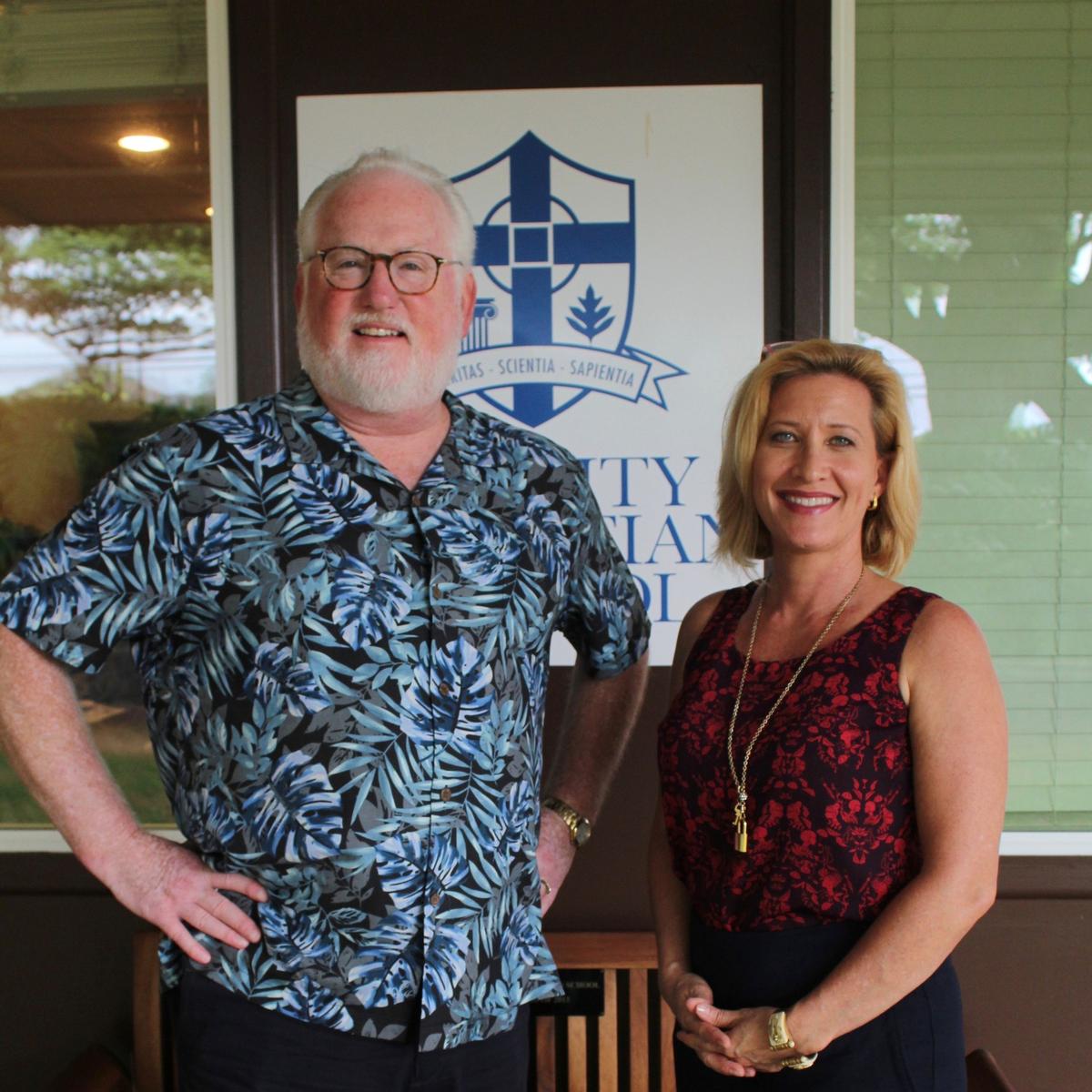
A Philosophy of Leadership in the School Setting
The Head of School as Visionary – Head Teacher – CEO
Written by Rodney J. Marshall, Ed.D.
Leadership in the school setting involves the exercise of principled influence to attain institutional ends. To reach these ends, the Head of School will provide thought and organizational leadership in three primary arenas, each of equal importance. These are a visionary leader, a head teacher, and a chief executive officer. The Head of School leads as a visionary because the organizational leader needs to perceive where the academy is going to lead toward achievement of its highest ends. As head teacher, he (or she can be assumed throughout) leads an academy where teaching and learning great ideas is the paramount purpose. The Head needs to inspire all constituencies to develop a vibrant learning culture. As chief executive officer, because the Head of School is the sole report of the board of trustees, responsible for fulfilling academy ends while assuring organizational integrity. The leadership opportunity is a broad and exciting one because the Head of School is leading an organization that changes the lives that will influence the future, and everything rises and falls on leadership.
"The leader thinks strategically about what could be, or what the academy should become, and how it should influence people."
The Head of School as visionary acts as the ardent proponent of the Academy’s unchanging mission and deftly leads it through changing times. He thinks and leads strategically. While managers care for the day to day activities of the school operation, a visionary leader prays, reads, and thinks years into the future to set organizational trajectory today. The leader thinks strategically about what could be, or what the academy should become, and how it should influence people. The visionary leader can also sense the obstacles to success that need to be overcome before impact, and find a way through the rubble while building on the experience. While the manager thinks about damage control, the leader looks for opportunity in a changing environment, and persuasively communicates this to key people and eventually to all constituencies. The manager surveys others in order to satisfy them, while the visionary thinks, and leads from the front.
The Head of School leads as head teacher and thought leader because he leads an academy where teaching and learning great ideas is the paramount purpose. The title headmaster, sometimes used for school heads, means head teacher (caput magister), or the leader of the college of faculty. The head’s learning audience includes every constituency related to the organization. Directly, and indirectly, by word and by example he teaches the board, the administrative team, the college of faculty, the student body, the parents, the alumni, the donors, the broader community, and those who will join any one of these constituencies in the future. He, therefore, needs to be an idea leader engaged in the great conversation about the world of the past, the present, and the future, and about all the marvelous subject matter that make up a school curriculum in academics, arts, and athletics. As head teacher, he is energetically engaged with transmitting and discussing these ideas to and with all constituents because he loves it and he is excellent at it.
As Chief Executive Officer, and the only direct report of the board of trustees, the Head of School is comprehensively responsible for leadership toward the achievement of organizational ends while maintaining organizational integrity. The CEO leads a management team that works to achieve organizational ends while operating every aspect of the institution’s business functions, advancement goals, and educational programs with excellence. While leadership style is not most important, most schools are best run neither autocratically or via a laissez-faire approach. Rather, most school management teams work with the head to reach consensus on significant decisions, while the head still retains responsibility for final choices. The Head of School regularly reports to and works with the board to achieve Academy ends with integrity. As chief executive officer, the Head of School leads the entire institution forward with a standard of excellence.
The effective Head of School will provide leadership as a visionary, head teacher, and chief executive officer. The job description is a broad and exciting one because the Headmaster is leading an organization that changes the lives that will influence the future—and everything rises and falls on leadership.
Princess Kaiulani: the Hawaii Tradition of Classical Christian Education

Written by Vicki Leong
As I reflect on the goals of a Trinity Christian School graduate, I am reminded of a Hawaiian Princess, Victoria Kawēkiu Lunalilo Ka'iulani Kalaninuiahilapalapala Cleghorn.
This spirited, educated, gentle lady is more familiarly known as Princess Ka'iulani, the princess who died much too soon. She was the daughter of Miriam Likelike, David Kalakaua’s sister and Archibald Cleghorn, a prominent Honolulu businessman, from Edinburgh, Scotland. Her uncle, David Kalakaua was the ruler of the Kingdom of Hawai'i when she was born. As he had no children of his own, Kalakaua saw Ka'iulani as the heir to the throne after his sister, Lili'uokalani. He introduced Ka'iulani to Robert Louis Stevenson, a well-known author and poet from England. Stevenson was captivated with Ka'iulani’s curiosity. They became good friends and were often found under a banyan tree in Waikiki, where they would discuss a myriad of topics.
“Education is simply the soul of society, as it passes from one generation to another.” —G.K. Chesterton
When she was just 12 years old, misfortune found Ka'iulani when her mother died. After this, her uncle Kalakaua, with his friend Robert Louis Stevenson, realized the need for Ka'iulani to “receive training traditionally given to children of European monarchs in preparation for ascending to the throne.”
Ka'iulani then found herself on the way to England where she studied French, German and English. During this time, she was under the guardianship of the Theophilus Davies who cared for this inquisitive, articulate and gracious “hapa-haole” young woman. Davies wrote, “I know it is Ka'iulani’s great desire to help the Hawaiian girls into lives of Christianity and purity.”
Trinity aims for graduates who love God, love others, love learning, think and articulate precisely, engage cultures, delight in beauty, and walk humbly. —TCS 2015
Princes Ka'iulani loved her God and embraced her people. Although she cherished learning about Western culture, she spoke resolutely about the injustice against Hawaii. In 1893, Ka'iulani’s aunt, Queen Liliuokalani was deposed from her throne, after a struggle for power between the United States and the Kingdom of Hawaii. This action greatly grieved Ka'iulani, aware that she was next in line to the throne, and as she sensed annexation looming ahead, she bravely spoke these words in New York on her return to Hawaii.
“Seventy years ago, Christian America sent over Christian men and women to give religion and civilization to Hawaii. They gave us the gospel, they made us a nation and we learned to love and trust America. Today three of the sons of those missionaries are at your capital asking you to undo their fathers’ work. Who sent them? Who gave them authority to break the constitution, which they swore they would uphold. Today, I, a poor, weak girl, with not one of my people near me, and all these Hawaiian statesmen against me, have strength to stand up for the rights of my people. Even now I can hear their wail in my heart and it gives me strength and courage and I am strong, strong in the faith of God, strong in the knowledge that I am right, strong in the strength of 70,000,000 people who in this free land will hear my cry and will refuse to let their flag cover dishonor to mine.” (https://houseswithhistory.wordpress.com/2012/04/11)
Trinity Christian School, in Kailua, Hawaii in the Ko'olaupoko Ahupua'a endeavors to graduate those who will follow in the steps of Princess Victoria Kawēkiu Lunalilo Ka'iulani Kalaninuiahilapalapala Cleghorn. We desire for graduates who love God wholeheartedly, and who love those from all cultures. We seek graduates who love learning and logical thinking, who articulate succinctly and persuasively, and delight in all things beautiful, while walking humbly before our God.
Recent Posts
Tag Cloud
5th grade academics administration all school all-school alumni athletics big island blog christian christmas class of 2018 classical classical christian classical christian education classical-christian-education classical-education college commencement community coram deo debate discipline donation drama educatio education educational philosophy electives elementary exhibition faculty fine art golf tournament graduates graduation hawaii hawaiian history head of school IB program kaiulani kupuna day leadership makahiki may day missions music office outreach parentsArchives
Looking for more? Read our Grand Tour blog and Athletics blog!


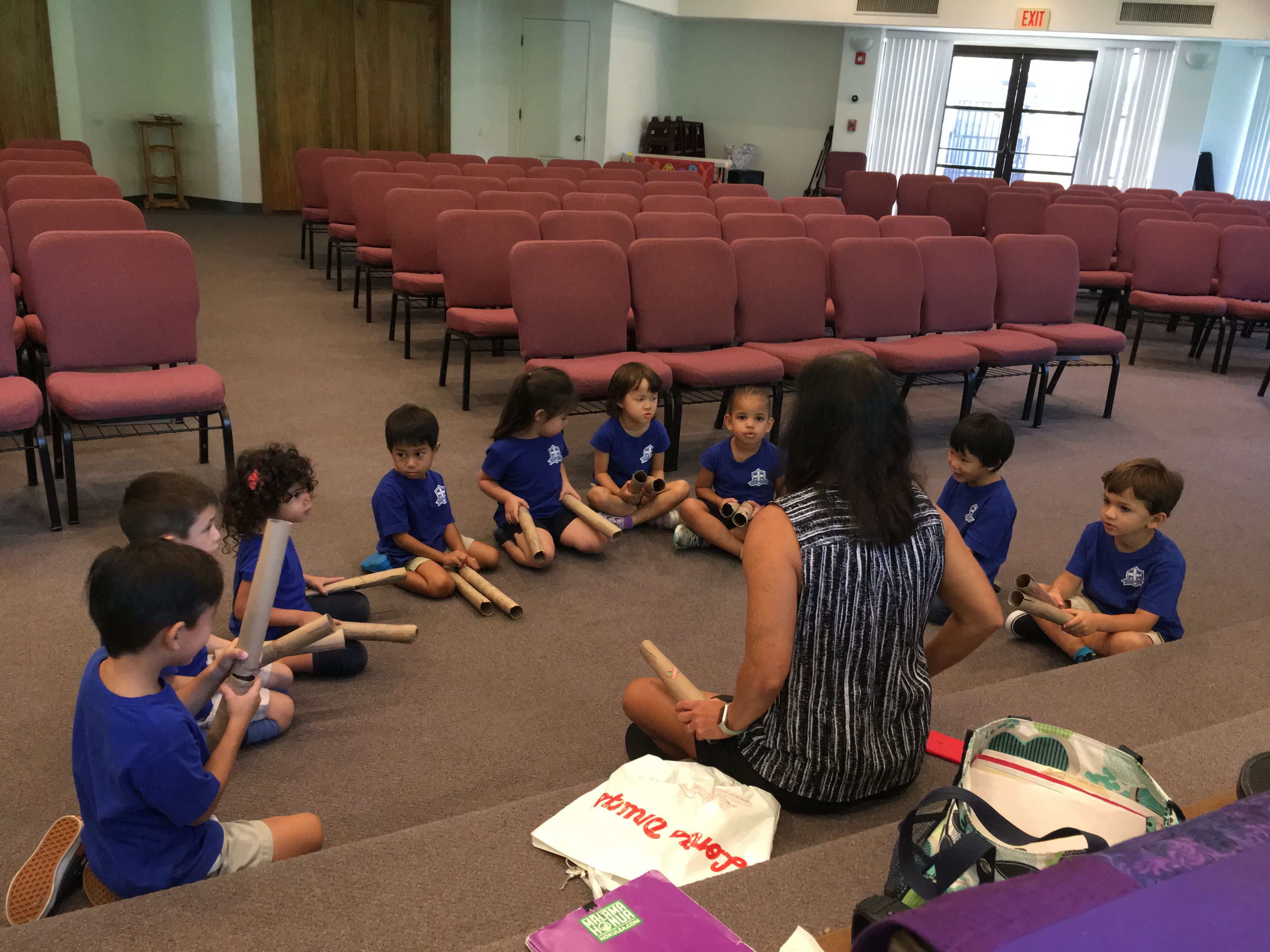
.jpg)